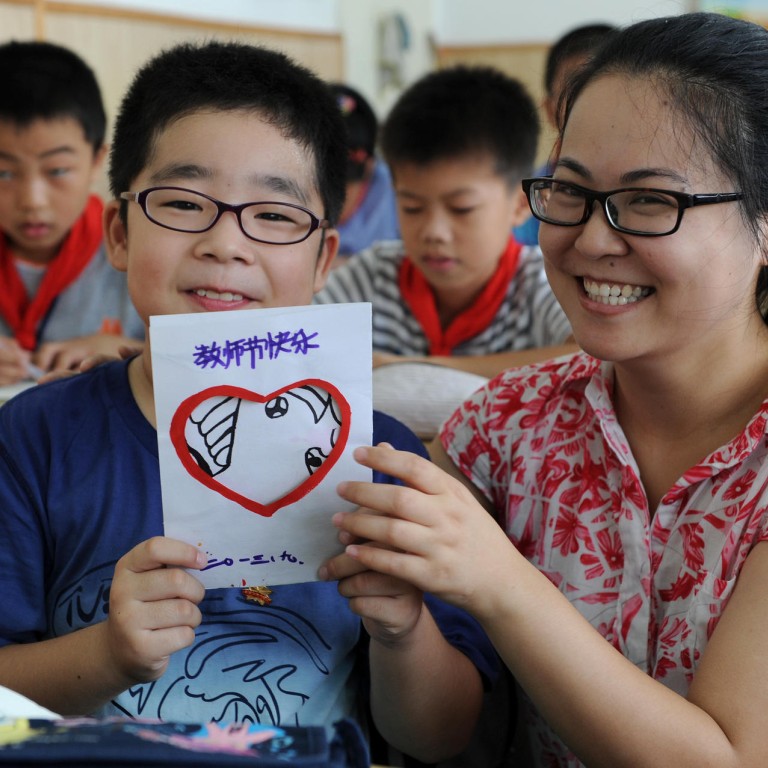
Time-honoured Teacher's Day practice giving more parents pause
Gift or no gift? That was the quandary facing many mainland parents ahead of Teacher's Day yesterday. Explaining the problem, one mother in Beijing said she received a phone call from her husband on Monday asking whether they should prepare gifts for the teachers of their four-year-old daughter at her public kindergarten in Dongcheng district.
Gift or no gift? That was the quandary facing many mainland parents ahead of Teacher's Day yesterday.
Explaining the problem, one mother in Beijing said she received a phone call from her husband on Monday asking whether they should prepare gifts for the teachers of their four-year-old daughter at her public kindergarten in Dongcheng district.
The father heard that other parents were buying gifts, and was worried that the teachers might think less of their daughter if they did not follow suit. But the mother had her own concerns.
"I feel bad about the practice. I don't think we should do this. It is ethically unacceptable," she said, declining to be named.
There were four teachers in their daughter's class. If a gift cost 500 yuan (HK$629), that would mean shelling out 2,000 yuan, she said.
But the young mother's biggest headache was not money. Due to her busy work schedule, she'd had very little contact with the teachers and knew nothing about their personal backgrounds or interests. Even if she did approve of teachers' presents, she had no idea what to give them.
The gift cards allow the teachers to buy whatever they prefer - then have the items shipped to their homes to avoid embarrassment and other inconveniences.
Though some parents say gift-giving on Teacher's Day reflects the materialism and corruption of Chinese society today, it is in fact a very old practice.
Confucius, for instance, frequently received gifts from his students 2,500 years ago, seemingly without batting an eyelid. In the great sage proclaims: "Students who give me 10 strips of salted pork or more, I have never refused to teach."
There has been some debate over the centuries as to whether the "pork" was tuition or a gift, but Zhu Xi (1130-1200), the most influential scholar of Confucianism in the Song dynasty, interprets it as the most basic form of gift from a student to teacher at the time of Confucius.
The tradition of gift-giving harks back to times when teachers had unreliable incomes or lived in poverty. Many educators could not survive without gifts from pupils and their parents because they neither worked on farms nor owned property. Most schools were privately run, without government support.
Of course, today's teachers, especially those in cities, receive a stable and respectable government salary that includes housing and medical expenses.
Teachers at some privileged schools in cities such as Beijing and Shanghai can earn several times the salaries of typical public servants if they tutor in their own time. To many parents today, the notion of giving gifts to teachers seems more like a bribe. For some teachers, the gifts prompt feelings of unease rather than gratitude.
Almost every school has banned teachers accepting gifts from pupils or parents during public holidays, and the Ministry of Education reiterates several times a year that any teacher caught taking gifts could be fired.
A primary school teacher in Changchun, Jilin, said the gifts brought him more pressure than pleasure.
"Even if the government turns a blind eye to this practice, I won't feel comfortable taking gifts because it is a burden," he said.
"Some parents have high hopes for their children and hope I can help, but academic performance cannot be boosted by gifts, however costly they are."

